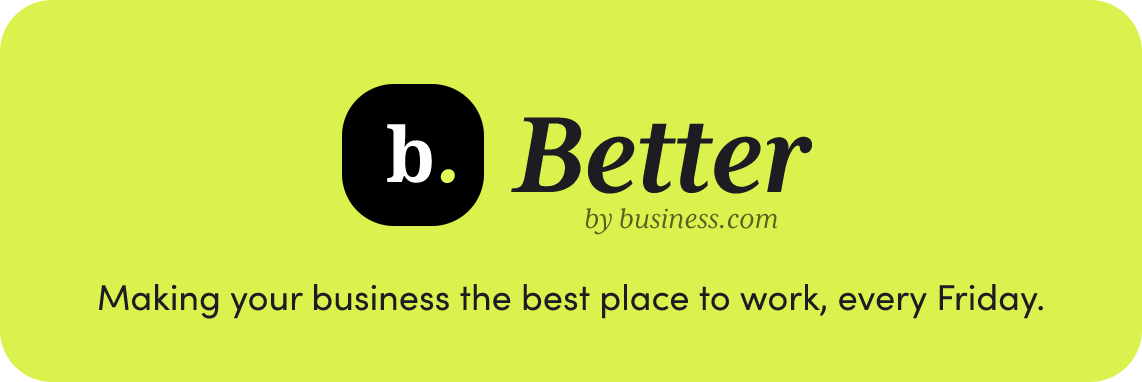As the holidays approach, some people are impossible to shop for (dads, they’re called “dads”), but is that only because you’re limited by a puny human brain? Probably, which is why Google Shopping has a new AI feature that suggests what gifts to buy.
To use it, turn on Search Generative Experiences (SGE) in Chrome, then type “gifts for” followed by their specific interests and/or demographic info.
We tried searching for “gifts for dads who don’t want anything,” to which SGE responded, “Dads who don’t want anything material may appreciate gifts that create lasting memories. This could include tickets to a sporting event, concert, or play. It could also be a gift certificate for a massage, a round of golf, or a cooking class.” (Hey, it beats the neckties we’ve been giving him for the past 30 years.)
|
|
|
Why Did a “He-Cession” Impact the Workforce?
|
While the COVID recession impacted Americans of all genders, it became known as a “she-cession” for a reason: Before the pandemic, male and female unemployment was nearly equal at 3.4% and 3.6% respectively — but during the pandemic, it rose to a far less balanced 16.2% and 13.5%.
The most-cited reason: With schools and daycares closed, more women than men put their careers on hold to supervise children. Also, COVID particularly impacted the travel industry, which employs more women.
But as the public health emergency ended, women bounced back to record-high labor force participation in 2023. So, while the “she-recession” is over, it could have a twin movement: the “he-cession.”
Murmurs of this phenomenon began early last year as labor watchers noted that, while the pandemic slowdown hit women hardest — and the gender pay gap has persisted — male workers were more sluggish to recover. Millions of men in their prime working years were still missing from the labor force (and female college students dramatically outnumbered male ones). Experts pointed fingers at everything from video games and opioid addiction to automation and cultural disillusionment.
As inflation spiked and careers became gigs, men were perhaps more sensitive to a feeling of lower status, the Boston Fed postulated. Another theory: women have been encouraged to enter traditionally male career fields in significant numbers, but the opposite has not yet occurred.
With emerging discussions of a male loneliness epidemic, something even bigger seems to be underway. An economic problem has incentive-based solutions, but how do we solve for male malaise? (Or “Male-aise”?)
“Today work rates for prime-age American men are actually lower than in 1940, when America’s unemployment rate stood at almost 15%,” writes economist Nicholas Eberstadt. But with companies struggling to fill open roles, do some of these guys just not want to work? Does it feel less urgent with so many young adults living with parents to save on rent? Do the jobs not pay enough to bother?
Fortunately, a new report suggests the worst might be over. In October, the Federal Research Bank of San Francisco predicted that historically low male millennial labor participation will eventually rise back to previous generations’ levels. Many are simply pursuing postsecondary degrees, according to the researchers.
(Or maybe — hear us out — they’re just becoming TikTok influencers? Somebody get these fellas behind a desk!)
Who runs the world? Check out 10 successful businesses you didn’t know were run by women.
|
|
|
Zoro.com: Tools, Parts, and Supplies For Your Business™
|
Whether you run a mom and pop shop or a global enterprise, Zoro is your one stop shop for the tools and equipment you need to keep your business running. Find great deals on millions of items from thousands of brands, including some of the hardest to find products for niche businesses.
Whether you’re in the market for personal protective equipment, tools and machinery, heating and cooling equipment, office supplies, electronics or more, Zoro has it all. And, as your business scales, they have the flexibility and selection needed to meet your growing needs.
Best of all, Zoro offers fast and free shipping on orders of $50 or more. They also extend Net 30 payment terms for qualifying customers, so you can buy what you need without disrupting your cash flow. With such a vast selection, it’s no surprise why Zoro has been the go-to supplier for businesses everywhere for 12 years, shipping more than two million items each day to companies of all sizes.
Start shopping today at Zoro.com.
|
|
|
How to Build Trust From Your Team Without the Falls
|
Dr. Steven Rogelberg is a chancellor’s professor at UNC Charlotte, former president of the Society for Industrial and Organizational Psychology, and author of Glad We Met: The Art and Science of 1:1 Meetings.
A great African proverb is as follows: “If you want to go fast, go alone; if you want to go far, go together.”
To go together, however, requires trust in a leader and their abilities. With trust, team members are more engaged, motivated, collaborative, dedicated, and persevering in the face of inevitable obstacles.
To foster trust, a leader should enact and leverage a host of strategies:
- Without competence, trust will not form, so level up your job-related skills. If you’re unable to do some activity or task, admit it and seek support.
- Be an honest broker. Act with integrity and fairness, and follow through on your commitments and promises.
- Communicate responsively, openly, and transparently with your team.
- Mentor and support team members. Actively help them with their challenges. Foster meaningful relationships by demonstrating genuine interest in them and understanding what they need and want. Don’t play favorites.
- If you make a mistake, admit it, take responsibility, talk about it, and demonstrate learning.
- Align your values and motives with those of the organization and team rather than acting in a self-centered way to advance your own desires.
- Empower those around you to act and make decisions without micromanaging them. And if they get something wrong, work with them to rectify the situation, so they can learn and grow.
Building trust takes time and effort but is incredibly worth it for all parties and essential to your personal success as a leader.
|
|
|
Netflix Thriller Fair Play: Competition for a Promotion Gets Cutthroat
|
|
|
“If I had to choose between you and the promotion, I would sit and think about it — and probably still choose the promotion,” Luke (Alden Ehrenreich) tells new fiancée Emily (Phoebe Dynevor) in Netflix’s original film Fair Play. The pair both work at a hedge fund where their relationship is a zipped-up secret.
Writer/director Chloe Domon essentially tells us two things about promotions: there’s how we say they work (the most qualified candidate earns the role) and then there’s how they often do work (the most adept ladder-climber networks and undermines the hardest). But what is the fallout when colleagues are competitors first, collaborators second … and, uh, engaged third?
The weeks following the holidays are peak promotion season, according to LinkedIn data. Best to go into that year-end review knowing what to ask for.
Take a cue from “Ted Lasso” — find out why you should promote from within your company.
|
|
|
On Nov. 17 in Business History:
|
If you’ve got a brilliant idea floating around your head, go ahead and file it with Uncle Sam because today is historically a great day for patents…
- 1791: Inventor Eli Terry received the first clock-making patent in the U.S. His efforts made Connecticut the backbone of American clockmaking in the 19th century.
- 1891: Emile Berliner got his patent for combining a telephone and telegraph into a single device. (You think the iPhone 15 is cool?)
- 1917: If you enjoyed a fresh shave this morning, thank J.B. Williams for patenting Aqua Velva. Perhaps it’s not the highest-end aftershave in modern times, but our respect goes to the original for the unparalleled tagline, “It delights with its he-man fragrance.”
- 1970: Using your mouse to scroll down this very newsletter? You can thank Douglas Engelbart for that — he patented the first computer mouse on this day. The idea just clicked.
|
|
|
Written by Elizabeth Barton and Ali Saleh. Comic by John McNamee.
|
|
|
|








_2.jpg)